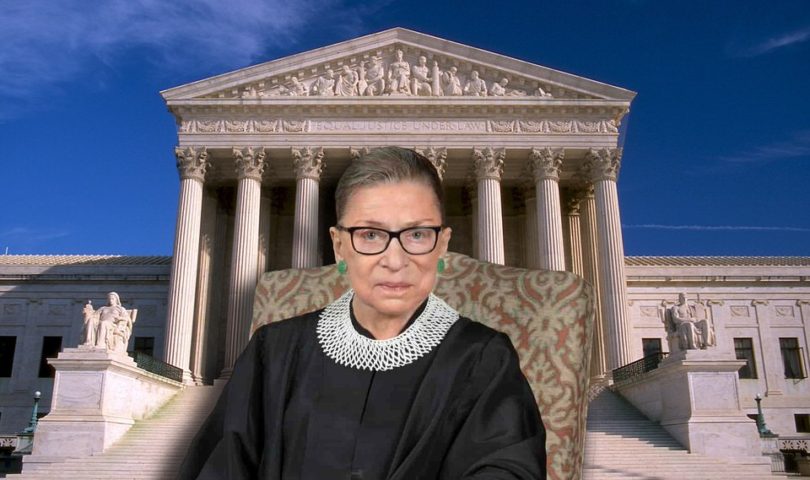Supreme Court Justice Ruth Bader Ginsburg passed away on Friday, September 18. On Friday, September 25, she will become the first woman in American history to lie in state in the Capitol, an honor that has not been bestowed upon any Supreme Court Justice since Chief Justice and President William Howard Taft. House Speaker Nancy Pelosi (D-CA), while speaking on Monday, September 21, called Justice Ginsburg’s death “an incalculable loss for our democracy and for all who sacrifice and strive to build a better future for our children.”
In the days since her passing, millions of Americans have collectively mourned her as a hero. A trailblazer who sought true equality for all under the law, Ginsburg was the second woman appointed to the United States’ highest court, and the first Jewish woman to sit on the bench. In Washington, D.C., the celebration of Justice Ginsburg’s life brought thousands to the steps of the Supreme Court, leaving signs, flowers, sealed letters addressed to the Justice and stones in accordance with Jewish tradition. In a visually stunning and enormously touching moment, her casket was carried to the Supreme Court as 143 of her former law clerks lined its steps.
Throughout her years specializing in constitutional law , Ruth Bader Ginsburg argued six cases before the Supreme Court. Among those cases were several seminal victories for women: the right to have a bank account independent from ones husband or Father, the right to take out a mortgage without a male co-signer, the right to employment protection regardless of maternal status or plans to have children and the right of a wife to be an equal voice to her husband in matters of finance.
As an attorney, Justice Ginsburg tore down barriers that blocked women from financial independence, and by doing so, promoted financial literacy among women, challenging the dominant paradigms of gender that existed at the time. She argued cases representing men as well, for example, the right of certain parental benefits to a widower, when the law had previously only accounted for widows. Ginsburg’s career as a lawyer was not merely focused on the rights of women, but on the challenge to traditional structures of family, gender and sex that when written into our laws, oppress us all.
Ruth Bader Ginsburg was, and is, nothing short of a cultural icon. An inspiration to women all over the world, she served as a symbol of the fight for gender equality, and a catalyst for concrete progressive change. For American women, Ruth Bader Ginsburg’s death is personal. A representative of reproductive rights, women’s healthcare, marriage equality and financial independence, amidst the darkness of America’s political world, she was a light that shone bright enough for all to see and a beacon of hope in times of strife. The personal nature of her death has been brought to the floor of our Congress. In her remarks regarding the Justice’s death, Senator Elizabeth Warren (D-MA) called Justice Ginsburg “a personal hero,” and praised her accomplishments as an attorney and jurist.
As her tenure on the court neared its end, and as the court grew more conservative, Justice Ginsburg did not relent in her beliefs, writing some of her most fiery dissents in recent years. In a dissenting opinion on the topic of federal preclearance on state election procedures in the context of the Voting Rights Act, Justice Ginsburg wrote that “Throwing out preclearance when it has worked and is continuing to work to stop discriminatory changes is like throwing away your umbrella in a rainstorm because you are not getting wet… the Court’s opinion can hardly be described as an exemplar of restrained and moderate decision making. Quite the opposite. Hubris is a fit word for today’s demolition of the [Voting Rights Act].” Until the end, Ruth Bader Ginsburg fought to uphold our democracy, the values on which our nation was founded and the people who call it home.
Many of us will remember Ruth Bader Ginsburg as a hunched, grandmotherly figure. History will remember her as a true giant. Her time as a lawyer, as well as her jurisprudence have had immeasurable impacts on the lives of all Americans. Although some may argue that Ginsburg’s growing cultural popularity was due to her eloquent dissenting opinions, Justice Ginsburg’s surge of cultural recognition was not just due to her writings, but her representation of a side of American jurisprudence many Americans had forgotten existed in recent years: the side of respect, calculated and deliberate words, integrity, concrete action towards equality and—most of all—honor and dignity.

